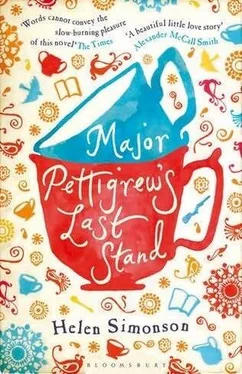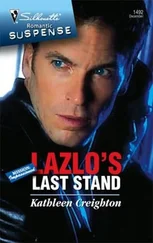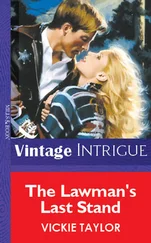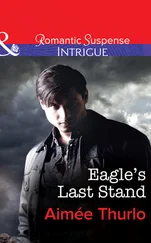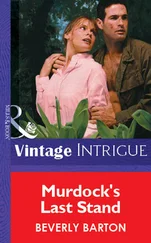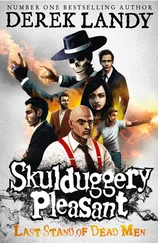He had been sitting in the scullery, in the same fixed position, for at least ten minutes. He remembered coming in from the garden and taking Bertie’s gun out of its quilt wrappings, but after that his thoughts had wandered until his eyes, focused on the old print of Windsor Castle on the wall, began to see movement in its brown water stains. The Major blinked and the spots resumed their inert positions in the pitted paper. He reminded himself that such lapses into moments of slack-jawed senility were unbecoming to his former rank. He did not want to become like Colonel Preston. He did not have the necessary interest in house plants.
On Fridays, twice a month, the Major visited his former CO, Colonel Preston, who was wheelchair-bound now with a combination of Alzheimer’s and neuropathy of the legs. Colonel Preston communicated with a large potted fern named Matilda and also enjoyed watching wallpaper and apologizing to house flies when they bumped into closed windows. Poor Colonel Preston could only be roused to any semblance of normality by his wife, Helena, a lovely Polish woman. Shaken on the shoulder by Helena, the Colonel would immediately turn to a visitor and say, as if in the middle of a longer conversation, “Got out just ahead of the Russians, you know. Exchanged the dossiers for permission to marry.” Helena would shake her head in mock despair, pat the Colonel’s hand, and say, “I worked in my father’s sausage shop, but he remembers me as Mata Hari.” Helena kept him freshly bathed, in clean clothes, and on his many medications. After every visit, the Major pledged to exercise more and do crossword puzzles, so as to stave off such weakening of the brain, but he also wondered with some anxiety who would wash the back of his neck so well if he were incapacitated.
In the dim light of the scullery, the Major straightened his shoulders and made a mental note to first inventory all the prints in the house for damage, and then get them looked at by a competent conservator.
He turned his attention again to Bertie’s gun, lying on the counter. He would try not to waste any more time wondering why Bertie had neglected it all these years and what it meant that the gun lay unwanted in a cupboard even as Bertie rejected cash offers from his own brother. Instead, he focused his attention on a dispassionate inspection of the parts that might need repair.
There were cracks in the grain, and the wood itself was gray and dry. The ivory cap on the butt was deeply yellowed. He cracked the action open and found the chambers dull but thankfully free of rust. The barrel looked straight, though it had a small grouping of rust spots, as if it had been grasped by a sweaty hand and not wiped down. The elaborate chase work, a royal eagle entwined with persimmon flowers, was black with tarnish. He rubbed a finger under the eagle’s flailing talons and sure enough, there was the trim and upright “P” monogram, which his father had added. He hoped it was not hubris to experience a certain satisfaction that while maharajahs and their kingdoms might fade into oblivion, the Pettigrews soldiered on.
He opened the gun box, lifted out the sections of his own gun, for comparison. They slid together with well-oiled clicks. Laying the two guns side by side, he experienced a momentary lapse of faith. They looked nothing like a pair. His own gun looked fat and polished. It almost breathed as it lay on the slab. Bertie’s gun looked like a sketch, or a preliminary model done in cheap materials to get the shape right and then discarded. The Major put his gun away and closed the box. He would not compare them again until he had done his best to restore Bertie’s gun to its finest possible condition. He patted it as if it were a thin stray dog, found in an icy ditch.
As he lit the candle to warm the oil and took his leather case of cleaning implements out of the drawer, he felt much more cheerful. He had only to strip the gun down and work at it piece by piece until it was rebuilt just the way it was intended to be. He made a mental note to allow himself one hour a day for the project and he felt immediately the sense of calm that comes from having a well-designed routine.
When the phone rang in the early afternoon, his cheerfulness overrode his natural sense of caution at hearing Roger’s voice on the other end. He was not even upset by the worse than usual quality of the connection.
“You sound as if you’re calling from a submarine, Roger,” he said chuckling. “I expect the squirrels have been chewing on the lines again.”
“Actually, it may also be that I have you on speaker,” said Roger. “My chiropractor doesn’t want me holding the phone under my chin anymore, but my barber says a headset encourages oily buildup and miniaturization of my follicles.”
“What?”
“So I’m trying to get away with speakerphone whenever I can.” The unmistakable noise of papers being rustled on a desk, amplified by the speakerphone, sounded like one of Roger’s elementary school plays in which the children made thunderstorms by rattling newspapers.
“Are you busy with something?” said the Major. “You can always call another time, when your paperwork is finished.”
“No, no, it’s just a final deal book I have to read-make sure all the decimal points are in the right place this time,” said Roger. “I can read and chat at the same time.”
“How efficient,” said the Major. “Perhaps I should try a few chapters of War and Peace while we talk?”
“Look, Dad, I just called to tell you some exciting news. Sandy and I may have found a cottage on the Internet.”
“The Internet? I think you’d better be very careful, Roger. I hear there is nothing but con games and pornography on that thing.”
Roger laughed and the Major thought of telling him about the dreadful incident of Hugh Whetstone’s single entanglement with the World Wide Web but realized that Roger would only laugh all the harder. Poor Hugh’s book order had resulted in six unnoticed monthly credit card charges for membership to a furry friends website that turned out not to be one of his wife’s animal charities after all, but a group with distinctly more esoteric interests. It was more discreet to let the story drop anyway; it had been passed around the village as a friendly warning, but there were a few people who now called their dogs to heel when passing Whetstone in the lane.
“Dad, it’s a unique opportunity. This old woman has her aunt’s cottage-rent with option to buy-and she doesn’t want to use an estate agent. We could save all kinds of fees.”
“Good for you,” said the Major. “But without an estate agent, can you be sure the price is fair?”
“That’s the point,” said Roger. “We have a chance to get it locked up now, before someone makes her see what it’s really worth. It sounds perfect, Dad, and it’s only a few minute away, near Little Puddleton.”
“I really don’t see why you need a cottage,” said the Major. He was familiar with Little Puddleton, a village whose large contingent of weekenders had spawned several arty pottery shops and a coffeehouse selling hand-roasted beans at exorbitant prices. While the village hosted some excellent chamber music at a gazebo on the green, its pub had moved toward selling moules frites and little plates of dinner on which all the food was piled on top of each other and perfectly round, as if it had been molded inside a drainpipe. Little Puddleton was the kind of place where people bought fully grown specimens of newly hybridized antique roses in all the latest shades and then, at the end of the summer, wrenched them from their glazed Italian jardinières and tossed them on the compost heap like dead petunias. Alice Pierce, his neighbor, was quite public in her annual compost heap raids and had presented him last year with a couple of bushes, including a rare black tea rose that was now flourishing against his greenhouse.
Читать дальше
